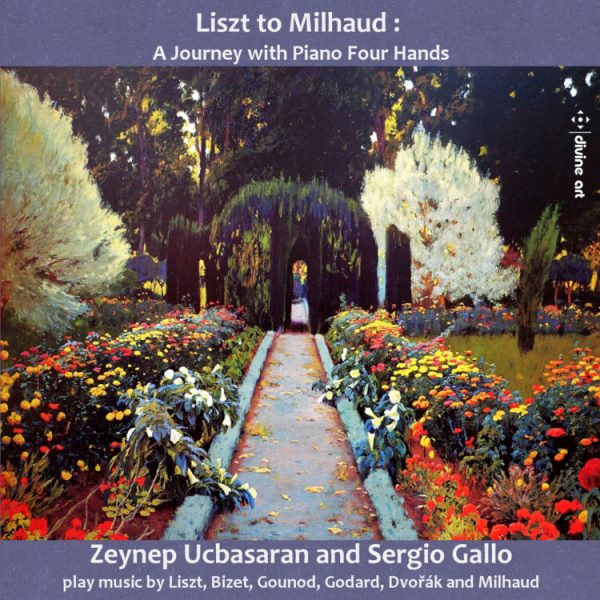Fanfare
Once past the eerie Night Procession (the first of Liszt’s Two Scenes), this is a generally upbeat collection of four-hand music—mostly transcriptions, largely dance-inspired, entirely delightful. Technique is secure (listen to the trills and tremolos in the Liszt), articulation is varied and imaginative, long-range dynamics are handled expertly, and the rhythms have a strong momentum without any trace of overdrive. More important, Ucbasaran and Gallo neatly capture, without exaggeration, the varying spirit of the collection, showing themselves equally at home in the sentiment of the Godard (gorgeously rendered), the peaceful purity of the opening of the “Pange Lingua” passage in Night Procession, the wholesome swing of the B section of the first of the Dvorak dances, the lift of the Gounod Waltz (heard in an arrangement far less intricate than Liszt’s more familiar version for two hands), and the wackiness of the Milhaud, which deftly kicks the recital to a close.
One editorial point: the Carmen “Overture” consists of the Prelude (without the repeat), stopping just short of the arrival of the fate motif, minimizing the emotional weight of the original. In a way, this fits the overall tone of the CD, but it may take you aback. The album implies that the arrangement, extremely straightforward, is Bizet’s own, although I’ve not been able to track it down.
Notes are fine, sound is good. All in all, there’s little profundity here and little that will change your understanding of the composers represented. But for those times when you’re seeking low-key pleasures, this will fill your needs, especially since the program as a whole has been cannily organized to avoid any sense of redundancy.
@divineartrecordingsgroup
A First Inversion Company
Registered Office:
176-178 Pontefract Road, Cudworth, Barnsley S72 8BE
+44 1226 596703
Fort Worth, TX 76110
+1.682.233.4978












